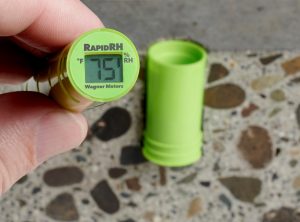Now Available, AIA CEU’s for Moisture Testing in Concrete Slabs Webinar

Featuring industry professionals with deep experience in concrete moisture measurement, this webinar provides a comprehensive look at the benefits and failings of various methods of concrete moisture testing used both currently and historically to test concrete for moisture content, including:
Calcium Chloride (CaCl) Testing
The Hood Method
Moisture Meters
RH Testing and In Situ Probes
With expert review of the science behind concrete processes and the most accurate ways to test concrete moisture content levels, the webinar, offered through Hanleywood University, now also carries AIA accreditation for architects and engineers looking to build their industry knowledge and staying current with the latest developements in moisture content management.
Course Description
The amount of moisture in a concrete slab will determine when flooring materials can be installed. Several tests are available to test the moisture content in concrete, but as this program will show, not all are accurate or reliable. This program will review common sources of moisture in concrete floor slabs, why it’s important to test for moisture, describe test methods, and discuss why relative humidity testing is the most accurate test method.
Learning Objectives
Describe the full flooring system from the ground up to the finish floor covering.
List the most common sources of moisture in concrete floors.
Describe why it is important to test for moisture in concrete floors.
Identify available methods for testing for moisture.
Discuss why relative humidity testing is the best method for measuring moisture in concrete floors.
To enroll, or for more information, visit Hanleywood University Learning Center.